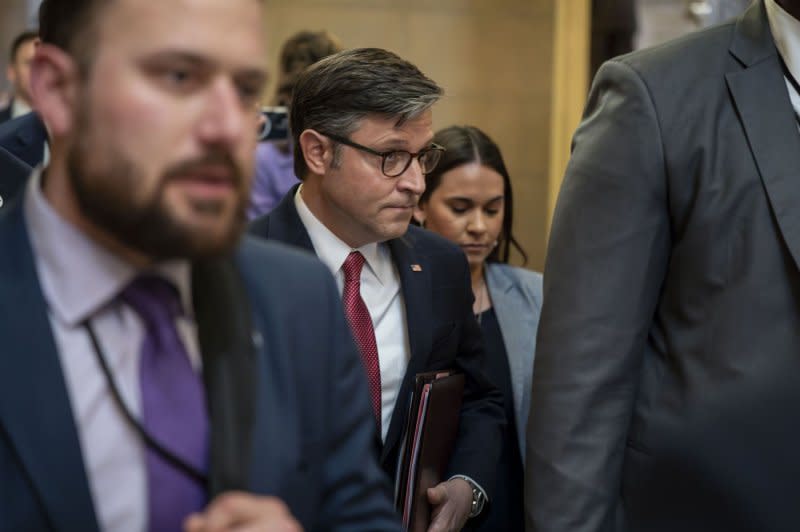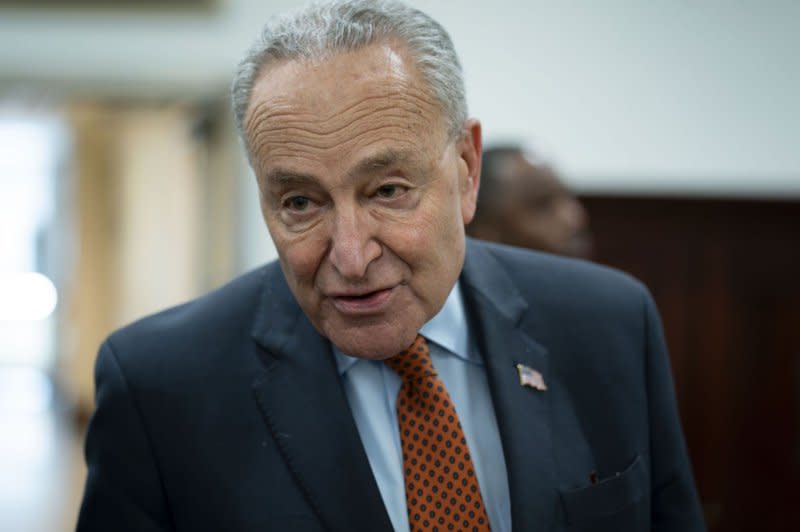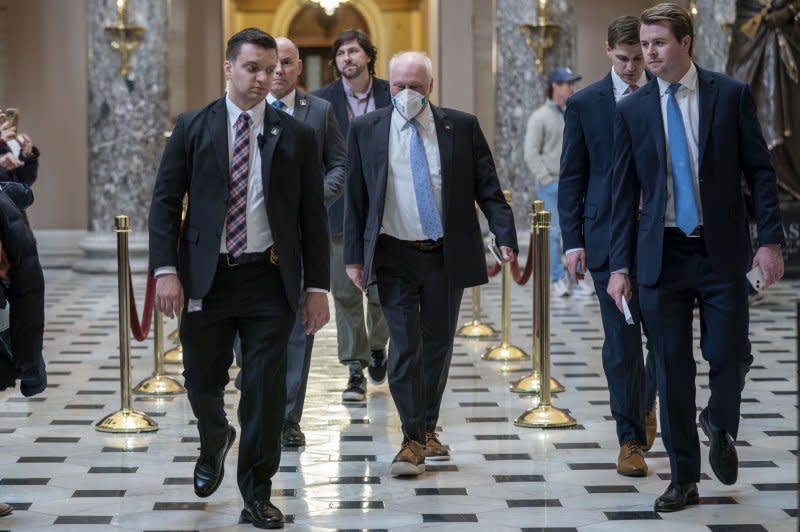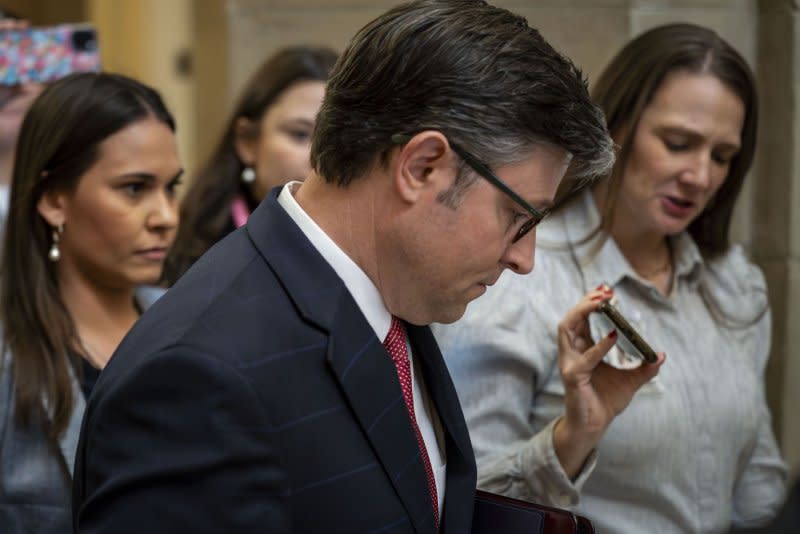Congress passes stopgap funding bill, averting government shutdown

- Oops!Something went wrong.Please try again later.
- Oops!Something went wrong.Please try again later.
Feb. 29 (UPI) -- Lawmakers in both the House and Senate staved off a government shutdown on Thursday, passing another stopgap bill extending funding deadlines for government operations into March.
House Lawmakers approved the bill, with a bipartisan 320-99 vote, before leaving the Capitol for the weekend. Those in the Senate then signed off on it in a 77-13 vote held several hours later.
The bill now heads to the desk of President Joe Biden to be signed into law.
"I'm happy to say there'll be no government shutdown Friday with all its harmful effects on Americans," Senate majority leader Chuck Schumer, D-N.Y., said in a statement Thursday night.
"This overcomes MAGA hard-right opposition and gives a formula for completing the appropriations bills in a way that neither shuts down government nor capitulates to extremists."

The Make America Great Again far-right isolationist movement is that of former President Donald Trump.
The spending bill, which pushes the funding deadlines to March 8 and March 22, required a two-thirds majority vote to pass, which meant House Speaker Mike Johnson, R-La., needed Democratic support for the bill. Only two Democrats voted against it, along with 97 Republicans.

In the Senate, all those who voted against the bill were Republicans.
Thursday's vote marks the fourth time a House GOP leader -- and the third time for Johnson -- put a continuing resolution on the floor since September.

Johnson's fellow Republicans have voiced frustration at his willingness to place stopgap bills on the floor, which pass with Democratic support.
Rep. Chip Roy, R-Texas, on Thursday accused Johnson of "kicking the can down the road" and buying "more time so we can spend more money that we don't have."
House and Senate leaders previously said in a joint statement Wednesday they are in agreement that "Congress must work in a bipartisan manner to fund our government."
The House proposed a short-term continuing resolution that would extend a deadline to March 8 to fund Agriculture, Commerce, Energy, Interior, Justice and Housing and Urban Development departments with permanent bills for the remainder of the fiscal year.
Another six funding bills would keep the Labor, Health and Human Services, Defense and other federal departments until March 22, giving lawmakers time to finalize them through the end of the fiscal year.
The stopgap was necessary to give lawmakers two more weeks to agree on funding for the remainder of the fiscal year ending Sept. 31.
President Joe Biden said Thursday in a statement published after the votes that the agreement prevents a "damaging shutdown and allows more time for Congress to work toward full-year funding bills."
"That's good news for the American people. But I want to be clear: this is a short-term fix -- not a long-term solution," he said.
Biden is calling on Congress to "do its job" and pass a full year of funding bills while calling on House Republicans to act on his bipartisan National Security Supplemental to fund Ukraine, along with Israel and other national security interests.
"It is time for House Republicans to put out national security fires and move with urgency to get this bipartisan bill to my desk," he said.
The vote has highlighted divisions in the GOP-led House as Reps. Troy Nehls, R-Texas, Byron Donalds, R-Fla., and Tim Burchett, R-Tenn., said they would not vote for the measure.
Rep. Marjorie Taylor Greene, R-Ga., said she would not vote Thursday as she was unhappy with the stopgap bill and "our entire GOP conference."
"Remember the big fight earlier this year about no CRs and rules and no omnibuses and no minibuses? Well, everything talked about in conference this morning was a CR, another CR, a weeklong CR," Greene said. "And then you've got the most conservative members of Congress standing up wanting a one-year CR. I don't know what to say."
But Rep. Patrick McHenry, R-N.C., told reporters Johnson and the GOP House caucus have just a two-person majority in a divided Washington and he said Johnson isn't likely to face a vote to remove him over this deal.
"This is House Republicans coming to terms with reality," he said.
In the Senate, minority leader, Mitch McConnell, R-Ky., who recently announced he would be stepping down from his GOP leadership position, from the floor on Thursday voiced confidence that the stopgap funding bill would pass.
"Leaders in both parties -- and both houses -- have agreed to a plan that would keep the lights on while appropriators complete their work and put annual appropriations bills on a glide path to becoming law," he said.
Sen. Jon Tester, D-Mont., the top Democrat negotiator in the defense funding bill isn't happy about the continuing chaotic funding brinkmanship, but nevertheless supports the action to avert a shutdown.
"If that's what it takes to get this done, then let's do it. But this 'kicking the can down the road' crap really does need to stop," he said.

